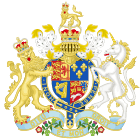Duty on Hair Powder Act 1795 facts for kids
| Act of Parliament | |

|
|
| Citation | 35 Geo. 3. c. 49 |
|---|---|
| Dates | |
| Repealed | 1869 |
| Other legislation | |
| Amended by | Hair Powder Certificates, etc. Act 1795 |
| Repealed by | Statute Law Revision Act 1861 |
|
Status: Repealed
|
|
The Duty on Hair Powder Act 1795 was a special law passed by the Parliament of Great Britain. This law put a tax on something called hair powder. Hair powder was a popular product used to make hair white or powdered, often worn with wigs. The government used this tax money to help pay for important things. A big reason was to fund the wars happening at the time, like the Revolutionary and Napoleonic Wars against France. This tax law was eventually removed in 1861.
Contents
What the Hair Powder Tax Law Said
This law made it clear that if you wanted to use hair powder, you had to follow some rules.
Getting a Certificate
Starting from May 5, 1795, anyone who wanted to use hair powder had to visit a special office. There, they would write down their name and pay for a yearly certificate. This certificate cost 1 guinea. A guinea was an old British gold coin, worth about £100 in today's money (2020).
Who Didn't Have to Pay?
Not everyone had to pay this tax. Some people were allowed to use hair powder for free. These included:
- The Royal Family and their helpers.
- Church leaders (clergy) who earned less than £100 a year.
- Many people in the armed forces. This included regular soldiers (privates), artillery soldiers, sailors, engineers, and some officers. It also included volunteers like the yeomanry, militia, and fencibles.
Special Family Rules
There were also special rules for families. If a father had more than two unmarried daughters, he could buy just two certificates. These two certificates would cover all his daughters, no matter how many he had, as long as he listed their names.
Rules for Servants
If you were the head of a household, you could buy one certificate for a certain number of your servants. This certificate would also cover any new servants who joined your household that year.
Fines for Not Paying
If someone was caught using hair powder without a certificate, they could face big fines. For example, a church leader named Rev. Francis Barstow was once fined twenty pounds for not having a license.
How the Tax Changed Things
Another law, the Hair Powder Certificates, etc. Act 1795, was passed later in the same year. This second law gave people more time to get their certificates.
| Hair Powder Certificates, etc. Act 1795 | |
|---|---|
| Act of Parliament | |

|
|
| Citation | 35 Geo. 3. c. 112 |
| Other legislation | |
| Amends | Duty on Hair Powder Act 1795 |
| Repealed by | Statute Law Revision Act 1871 |
|
Status: Repealed
|
|
The Decline of Hair Powder
Even before this tax, hair powder was becoming less popular. The new tax made it decline even faster.
- In its first year, the tax collected £200,000.
- By 1812, about 46,684 people still paid the tax.
- In 1855, only 997 people paid it. Most of these were servants.
- When the tax was finally removed in 1869, it only brought in about £1,000 each year.
Nicknames and Fashion
People who chose to pay the guinea tax for hair powder were sometimes called "guinea-pigs." This nickname was given by a political group called the Whigs. They were reformers who wanted to show support for the French. Instead of wearing wigs and hair powder, they cut their hair short, in what was called the "French" style.
Those who made fun of the "guinea-pigs" were then made fun of themselves! A newspaper called The Times called them members of the "Crop Club." They said these people wore the "Bedford Level," which was a joke about a famous Whig reformer named John Russell, 4th Duke of Bedford.
 | Mary Eliza Mahoney |
 | Susie King Taylor |
 | Ida Gray |
 | Eliza Ann Grier |

